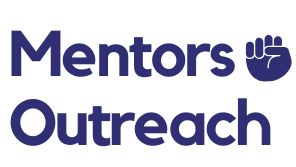When you hear “people person,” you think HR, right? While HR practitioners hold unique positions to speak on the topics of people and culture, they should not be the sole contributors to the topic of relating to others.
If you don’t relate well with people, you’re not going anywhere. Without other people’s feedback, it’s easy to become limited in your own mental silo of information or constrained by your own experiences.
What are people skills and do they matter?
A people person is skilled in influence, interpersonal facilitation, relational creativity, and team leadership. Ultimately, it’s someone who enjoys interacting or talking with others. Sounds like something that will make or break your career, right?
No matter where you happen to work in a company, it’s important to foster emotional quotient skills that will make you more approachable and appear as a support system. This will help build trusting relationships with your teammates.
But they aren’t just something you can grab off a shelf. But just like any other skill, you can definitely work on developing people skills.
What a people person isn’t
A people person isn’t just a smooth talker. You have to practice the art of listening. Great leaders know when to lean in and listen before jumping to conclusions. They demonstrate attentiveness, care, and eagerness when listening to their teams and customers.
A people person isn’t all talk and no walk. When your peers share their challenges, take this opportunity to jump into action. Whether that’s introducing them to another peer that may have the answers or providing guidance yourself, you try to help out any way you can.
And a people person doesn’t have to be an extrovert. If connecting with others in a large group isn’t your cup of tea, that’s OK! You can practice your interpersonal skills through insightful one-on-ones with your team members.
The road to being a people person is not always clear. (Illustration by Klaus Vedfelt)
Becoming the ultimate people person
Being social isn’t formally part of the job description, but the benefits are well worth it. We want professionals to engage in conversations at their own pace. It’s not a competition! But developing these skills will minimize conflict, establish trusting relationships, and overall create positive work experiences.
Remember the details. Pinpoint the little tid-bits about your peers. Hold onto details like their dog’s name, books they are reading, or shows they’re binge-watching. It’s the small things that count and that show you care about an individual beyond their work.
Be true to yourself. If you are feeling vulnerable, share it! But share on your own terms. Vulnerability is a strength when you channel it in a healthy and honest way. For example, sharing your stories and experiences establishes trust and signals to others that it’s acceptable to be vulnerable too.
Radiate positivity. Be aware of your facial expressions in meetings, and compliment others on things that you find interesting or unique. If you find a peer’s new Zoom background interesting or fun, compliment them! A little positivity goes a long way.
Turn sympathy into empathy. Sympathy is feeling for the other person. Empathy is stepping into the other person’s shoes. Telling someone you feel bad for them is less effective than telling them you empathize. For example, if you’re interviewing a potential candidate, think back to a time where you went through the interview process. Tap into those past experiences to resonate with your peers.
Ask, don’t tell. This creates an open space for discussion, not a dictation. If you want a task to be done by your teammate, simply ask if they’re available or willing to add this to their plate. Don’t just assume they can and will do it!
Find inspiring people. Watch a video of influential speakers like Barack Obama, Martin Luther King Jr., or Steve Jobs. Observe their body language, facial expressions, tone of voice. Adapt and refine gestures and techniques that feel natural to you.

